INSIDE ISSUE 19.31 | July 31, 2020
 BIG STORY: Voting at risk in S.C. due to coordinated cyberthreats, experts say
BIG STORY: Voting at risk in S.C. due to coordinated cyberthreats, experts say
NEWS BRIEFS: Briefs: Schools still working to find remaining students
COMMENTARY, Brack: Trump shows how scared he is 3 months before election
ANOTHER VIEW, E. Brack: Book outlines how 4 presidents tackled difficult situations
SPOTLIGHT: S.C. Senate Democratic Caucus
FEEDBACK: Send us a letter
MYSTERY PHOTO: Did it move?
S.C. ENCYCLOPEDIA: Lords Proprietors of Carolina
Voting at risk in S.C. due to linked cyberthreats, experts say
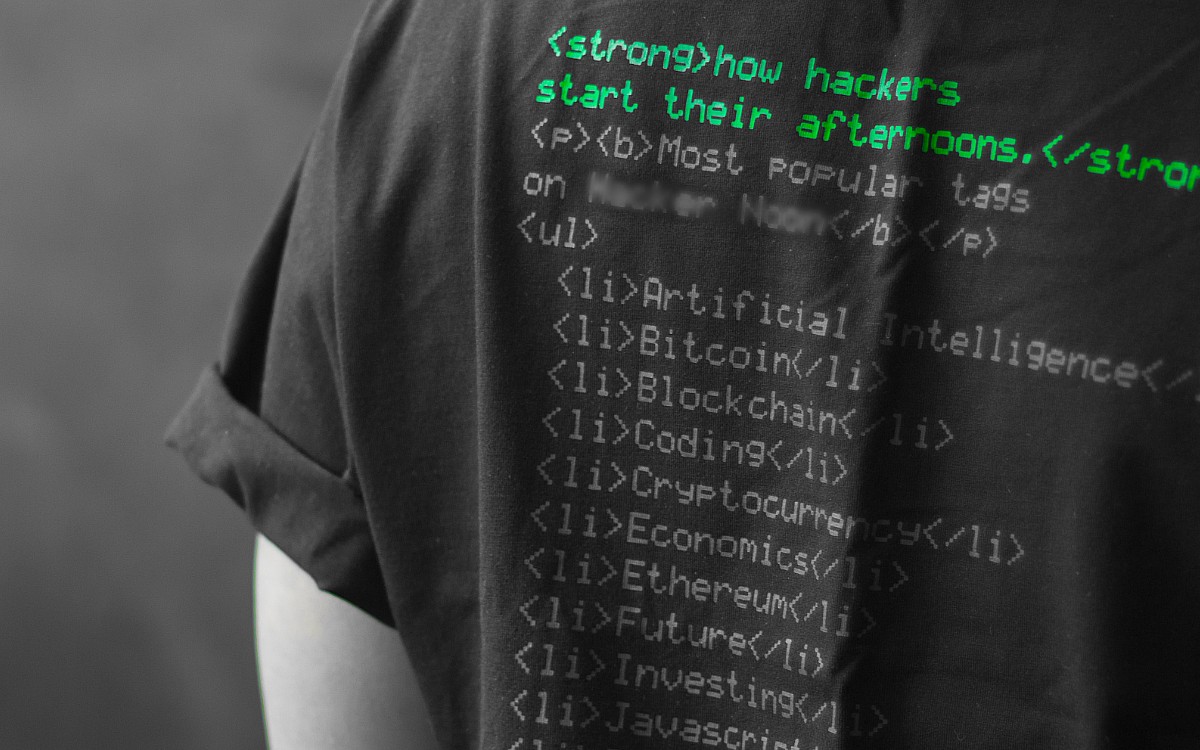
By Lindsay Street, Statehouse correspondent | The computer-connected world poses an immediate threat to South Carolina’s and the nation’s elections and, thus, the future of democracy, elections and online experts say.
“Ultimately, the voters are at risk and democracy is at risk,” said Clifford Neuman, a University of Southern California cybersecurity expert. He spoke Tuesday at the university’s 50-state workshop virtual series on election security.
Some in Columbia are taking note with the general election 94 days away.
“It’s a threat to our democracy when we have foreign governments, our own intelligence is saying, attempting to influence our elections,” Columbia Democratic Rep. Seth Rose said. “We should all be very, very terrified about that and be taking steps to do something about it.”
Threat to democratic elections include voter tampering or voter registration tampering through hacking. But those attacks, elections experts say, are just the tip of the iceberg.
Attacks on accounts and government systems often coincide with hack-and-release publicity campaigns (think: the release of Democratic presidential campaign emails prior to the 2016 election) and disinformation campaigns (think: the false news report that Bill Murray entered the 2016 election that spread like wildfire on social media).
The 2016 election was muddied by Russian interference — though experts can’t say if the outcome of the presidential election would have changed — and resulted in the federal government doling out funds for states to shore up protections.
But cybersecurity and election experts are still worried.
“States are really locking (elections systems) down so the votes themselves are OK but if there is any more of (other cybersecurity interference), it has an impact on voter confidence and democracy stands on voter confidence. You have to believe your vote counts for it to work,” National Conference of State Legislatures election security expert Wendy Underhill told Statehouse Report this week.
The S.C. General Assembly will reconvene for two weeks beginning Sept. 15. Only bills that have passed one chamber will be taken up in the other chamber, along with the state budget. But that does not rule out the possibility of a strike-and-insert bill, which means lawmakers could use something that passed as a vehicle to do anything they want by striking everything and inserting new language. That’s how they approved federal pandemic aid allocations in June.
The growing threat
 Clemson University communications professor Darren Linvill asks his incoming freshmen the same question at the start of classes: Have you ever been taught in school to determine if something on social media is true?
Clemson University communications professor Darren Linvill asks his incoming freshmen the same question at the start of classes: Have you ever been taught in school to determine if something on social media is true?
Students from South Carolina and beyond never seem to answer yes. And, as one of the state’s experts in online disinformation campaigns, Linvill said it frustrates him.
“We live in a world where most Americans get their news socially-mediated, and that can be very troubling,” Linvill said. “People need to understand how information comes to them and what that means and how they should interpret that information.”
A growing collection of evidence, gathered by academia and federal investigations, has shown the nation’s election systems, which are governed by states and conducted locally, are under attack.
Neuman said hackers look for weak passwords, phish for information through legitimate looking emails to state staff and send viruses. Those looking to meddle in elections not only hack but they also work on campaigns more akin to Madison Avenue than spycraft, Linvill said.
Those spreading disinformation online, known as “trolls” or “bots,” are often hard to spot on social media. Part of their effectiveness is the illusion that they are real people who agree with your political leanings, Linvill said.
“If they are disagreeing with you, it is more likely it is a real person because all the Russians ever did was agree with you,” he said. “They just want to make you agree with them more. It seems to be one of their primary goals to make our country more divided, to make us more disgusted with one another.”
And “they” could be Russian, Iranian, Chinese or even homegrown agents.
A state Senate race in Alabama in 2018 saw a homegrown campaign employ some of the tactics seen by Russians in 2016. Linvill said it’s only a matter of time before more campaigns adopt such a method for dirty tricks.
During Tuesday’s Election Cybersecurity Initiative workshop, Executive Director Adam Clayton Powell III highlighted the recent Twitter hack as a reason to pay attention.
“What if they had used the same technique in November with the goal of disrupting the election?” he asked.
The new voting system
South Carolina was among the states scrambling for a different voting system in the wake of the 2016 election. Its electronic-only system was old and vulnerable to hacking efforts, computer experts warned. The state implemented a new machine-marked and ballot-fed system ahead of the Democratic presidential preference primary in February.
Underhill said that was an important step in curbing cyber attacks but also in providing a boost to voter confidence with the ability to audit a paper trail.
 But concerns remain.
But concerns remain.
In a 2020 narrative seeking federal election assistance funds, the S.C. Election Commission wrote: “Challenges this agency faces include the constant threat of cyber-attacks as well as the implementation of the state’s new voting system.”
“The SEC is aware that it is a target of constant (albeit unsuccessful) cyber-attacks,” the agency continued.
The agency requested $6.8 million, some of which was sought to go toward strengthening cybersecurity. SEC spokesman Chris Whitmire did not respond to requests for comment for this story.
Neuman said a hacking breach only takes is one laptop keeping its connection to the internet, or a state or county election employee opening a phishing email for any voting system to be compromised.
Potential policy action
Cybersecurity for state agencies appears to be a top issue for Gov. Henry McMaster. Earlier this year, he earmarked $15 million in his proposed state spending plan to build a South Carolina National Guard facility in Aiken that will address cyber-threats. He also issued a 2017 executive order creating a cybersecurity czar at the State Law Enforcement Agency.
But this week, McMaster’s office would not say whether McMaster is concerned about the safety of elections or whether he thinks more should be done to ensure they are secure.
There are few bills in the current legislative session that address election cybersecurity. Most seek to further alter the state’s election system to a hand-marked ballot system. Another bill could address one of the largest concerns of election security: media literacy, which is the understanding of what is real information on an online platform. Freshman lawmaker Rose filed H. 4673 in January, where it stalled in the House Education and Public Works Committee. The bill would establish a panel to make recommendations to the state Department of Education on how to incorporate media literacy into school curriculum.
Linvill said his team at Clemson is working on an August release of a media literacy platform that walks users through fake social media accounts, helping them spot disinformation spreaders.
NCSL’s Underhill said state agencies can play a role by keeping an eye on disinformation, particularly being vigilant about those trying to spread fake changes to voting dates or precincts, and be ready to disseminate correct information.
States should also be working on how to address a potential backlog of absentee voting ballots, which cannot be counted until election day in South Carolina, Underhill said. With the coronavirus pandemic, more people than ever before are voting absentee to avoid standing in line.
The longer that voters wait for official election results, Underhill said, the more opportunity subversive campaigns have to disseminate fabricated results designed to make voters question the legitimate results. Several bills have been filed seeking tabulation of votes prior to election day.
- Have a comment? Send to: feedback@statehousereport.com
Schools still working to find remaining students

By Lindsay Street, Statehouse correspondent | While South Carolina public schools have tracked down 12,528 students in recent weeks, 3,557 students have not been in contact with their school since March 15 when the state moved to distance learning.
Initially, the state Department of Education found tens of thousands of students hadn’t checked in with their teacher by April, raising alarms around the state. By June 29, an official report from the state Department of Education found 16,085 students were still unaccounted-for. The July 24 report shows that the percent of public school children dropped from 2 percent to 0.5 percent.
“From our end, it was an extraordinary effort and continues to be an extraordinary effort,” Charleston County School District spokesman Andy Pruitt said. Charleston County School District now has 40 reportedly missing students, down from 356 on June 29.
Dorchester County School District 2 public information officer Pat Raynor called her district’s progress “remarkable” in dropping from 143 unaccounted-for students as of June 29 to 16 students as of July 24. Raynor said the effort in Dorchester County to contact students began soon after in-person class closures.
“That’s been a major priority through all of the process,” she said. “Some of the students, after repeated attempts had not been contacted, our school resource officers went out to the home … There’s been a lot of effort at every level.”
Raynor said some students did not have access to the internet or a device — something that will be solved with the district’s initiative this coming year to have a device for every student.
In a previous interview with sister publication Charleston City Paper, Charleston County School District Superintendent Gerrita Postlewait said the district’s efforts to find students uncovered potential cases of neglect but some cases were simply a high school student had stopped engaging when he or she got a job to help support family.
Lexington Republican Sen. Katrina Shealy said while the school districts have made a big effort in finding students, now comes the part of ensuring they have an education.
“We’ve found them and laid eyes on them but are we going to sign them up and get them back in school,” she said. “We have to figure out how we’re going to educate them and it’s way more than the (initially reported) 16,000 that haven’t had an education.”
Pruitt said there’s “no doubt about it” that the district is concerned about ensuring the students make up for lost educational time.
“(But) the first priority is making sure these kids are OK,” he said. “That’s where the energy is spent.”
In other news:
![]() Policing reform committee hears about problems, solutions. Four panelists described law enforcement’s heavy hand on Black people and low-income people at the first meeting of the House Equitable Justice System and Law Enforcement Reform Committee on Tuesday.The committee was convened in response to nationwide Black Lives Matter protests.
Policing reform committee hears about problems, solutions. Four panelists described law enforcement’s heavy hand on Black people and low-income people at the first meeting of the House Equitable Justice System and Law Enforcement Reform Committee on Tuesday.The committee was convened in response to nationwide Black Lives Matter protests.
Fourteenth Circuit Solicitor Duffie Stone said the panel should address a state law that allows citizens to shoot and kill a person suspected of property theft, pointing to the murder of Ahmaud Arbery in Georgia. University of Georgia School of Law professor Andrea Dennis said the panel should put an end to no-knock warrants, look at police accountability and establish a citizen oversight committee. Bail reform and sentencing reform were also addressed among speakers.
House Speaker Jay Lucas released a statement after the meeting calling it “an essential first step in taking up the many complicated yet incredibly important issues our state and nation are currently grappling with.”
- Related: School resource officers face renewed scrutiny in Charleston with a petition seeking to remove them from public school campuses. Read more.
Judge delays ruling on McMaster’s $32 million SAFE Grants. Can the governor dole out millions in federal virus aid for grants given to offset private school tuition? That question was at the center of a long hearing Wednesday in Orangeburg County. Earlier this month, Gov. Henry McMaster announced the intention of sending $32 million toward private school education. A lawsuit said that was against the state’s constitution that prohibits public funds benefiting private education. Orangeburg County Circuit Court Judge Edgar Dickson granted a restraining order to block the money but made no decision this week. Now McMaster is also holding funds set aside for many private historically Black colleges that were set to receive $2.4 million. Read more.
More than 195,000 South Caorlinians are still seeking unemployment. The 195,208 people are continuing to claim state jobless benefits in South Carolina. The figure dwarfs the number of those who filled out the state’s unemployment rolls during the Great Recession. Read more.
Election officials urge no-excuse absentee voting in November. The state Election Commission and an election official association have sent letters to the General Assembly and Gov. Henry McMaster urging no-excuse absentee voting for the November general election. Read more.
- Related: Senate Minority Leader Nikki Setzler of West Columbia has asked Senate President Harvey Peeler, R-Gaffney, to call senators back to the Statehouse to determine its response to voter safety issues in time to give local election officials enough time for implementation. Read more.
Pandemic kills 1,599 in S.C. so far. The S.C. Department of Health and Environmental Control announced Thursday 1,636 new confirmed cases of the coronavirus and 48 deaths. Since March, the state has recorded 87,117 confirmed cases and 1,599 confirmed deaths. The percent of positive COVID-19 tests rose to 21.5 percent on Thursday, an indication that the state may need to do more testing.
McMaster pushes mask orders to locals. McMaster urged Wednesday local governments to pass and enforce their own mask requirements in an effort to help curb the spread of the coronavirus. During that same announcement, he mandated restaurants abide by state recommendations of operating at 50 percent capacity for in-person dining and he mandated mask-wearing in all state buildings. He also allowed the reopening of concert halls, theaters and sports stadiums with limited capacity. S.C. Department of Health and Environmental Control projections show that universal mask use would drop the projected death toll of 4,348 by Oct. 1 under mandates easing to 2,728 deaths.
- Have a comment? Send to: feedback@statehousereport.com
Trump shows how scared he is 3 months before election
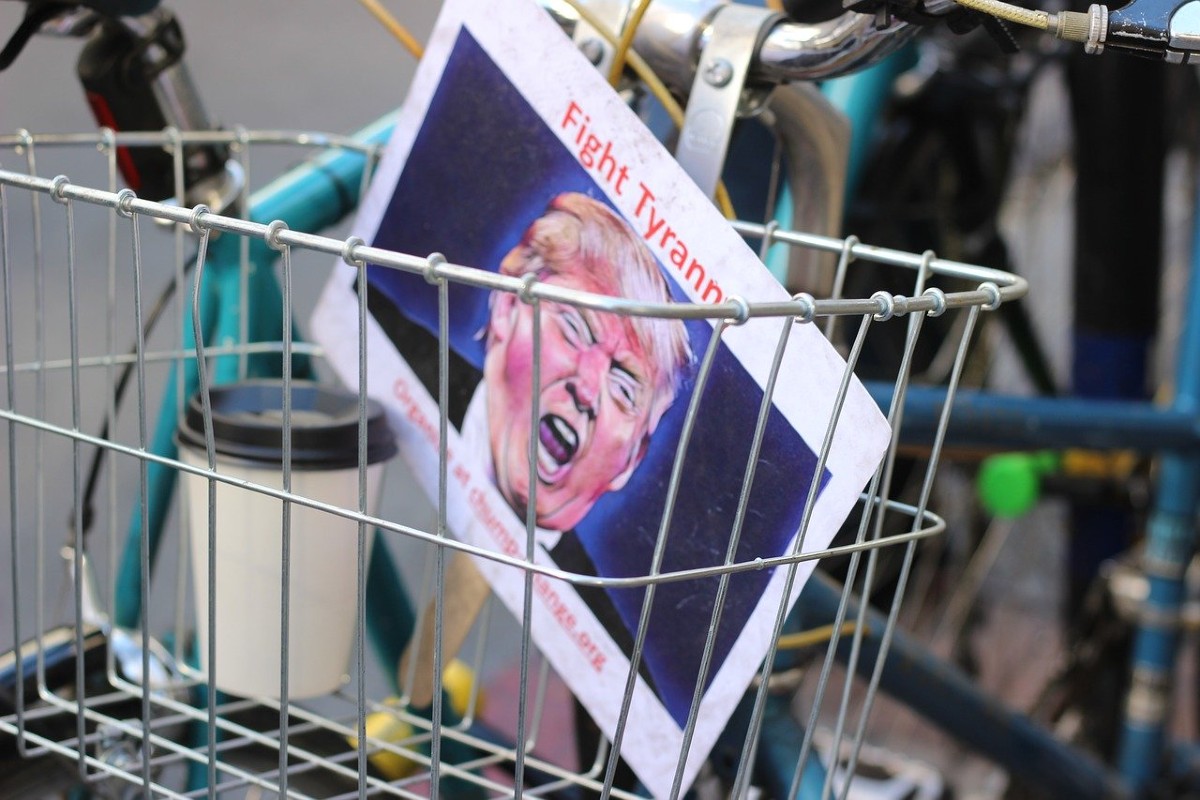
By Andy Brack, editor and publisher | Blustery Donald Trump is scared he’ll lose the November presidential election. He’s mortified of being called the worst thing in the book: The biggest loser.
 On Thursday as three presidents and the nation remembered the consequential life of U.S. Rep. John Lewis at an Atlanta funeral, the current president of the United States schemed to get into headlines by actually suggesting something expected in banana republics — not our democracy. He had the gall to float the idea that the November election should be postponed.
On Thursday as three presidents and the nation remembered the consequential life of U.S. Rep. John Lewis at an Atlanta funeral, the current president of the United States schemed to get into headlines by actually suggesting something expected in banana republics — not our democracy. He had the gall to float the idea that the November election should be postponed.
And thereby, he showed his political cards — he’s frightened, desperately trying to figure out a way to do anything to lower expectations, make excuses, suppress turnout, slyly encourage outside influence and interfere with fair and free elections.
No, Mr. President. You’re wrong. You need to stop the great election con of 2020 and get down to trying to win, if that’s what you want, not take us deeper into the swamp of malfeasance by corrupting the process.
You can’t stop or change the date of the election “until people can properly, securely and safely vote,” as you’ve said. People can now vote with confidence thanks to increased election vigilance, new machines and new security after the 2016 election, which you took despite losing the popular vote.
“Article II of the Constitution empowers Congress to choose the timing of the general election,” according to The New York Times. Furthermore, “an 1845 federal law fixed the date as the first Tuesday after the first Monday in November.” With Democrats in control of the U.S. House, no bill will be signed into law to move the election.
Republicans on Capitol Hill isolated Trump on his banana-republic idea of changing the election, a few meekly spouting that he probably was kidding. Other supporters roundly criticized the suggestion.
“Never in the history of the country, through wars, depressions and the Civil War, have we ever not had a federally scheduled election on time,” said Senate Majority Leader Mitch McConnell, R-Kentucky. “We’ll find a way to do that again this Nov. 3.”
U.S. Sen. Lindsey Graham, R-S.C., added during a Senate hearing, “In South Carolina, we had a very large primary in June and were able to do it in person. I think we can be able to safely vote in person in November. I think delaying the election probably wouldn’t be a good idea.”
The consequence of not having free elections at a certain time was clear to Abraham Lincoln in 1864 during a civil war ripping apart the country: “We can not have free government without elections; and if the rebellion could force us to forego, or postpone a national election, it might fairly claim to have already conquered and ruined us.”
The notion of postponing elections is a red herring floated by a panicked elected official who sees the economy caving because of his failure of leadership during a time of pandemic. Rather than fixing problems, he obfuscates, squirting out the black ink of an octopus to try to slither towards safety.
Trump should start emulating a man that he has tried to harm for years, former President Barack Obama, who spoke eloquently about the need to expand voting and freedom, not try to fix elections, during the Thursday funeral for Lewis. Referring to past hurdles for voting for blacks before the civil rights movement, Obama said:
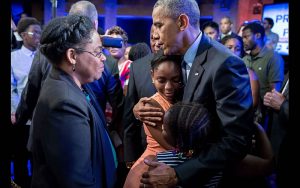
“We may no longer have to guess the number of jelly beans in a jar in order to cast a ballot. But even as we sit here, there are those in power (that) are doing their darnedest to discourage people from voting — by closing polling locations, and targeting minorities and students with restrictive ID laws, and attacking our voting rights with surgical precision, even undermining the Postal Service in the run-up to an election that is going to be dependent on mailed-in ballots so people don’t get sick.
Obama then called on elected leaders to strengthen a recently-weakened federal Voting Rights Act to encourage turnout on election day by automatically registering all Americans to vote, adding polling places and making election day a national holiday.
Voting is sacred to democracy. Fiddling with it shows a loathing disdain for freedom. Knock it off, Mr. President.
- Andy Brack is editor and publisher of Statehouse Report. His column also is published in the Charleston City Paper, Florence Morning News, Greenwood Index Journal, The (Seneca) Journal, Camden Chronicle Independent and Hartsville Messenger. Have a comment? Send to: feedback@statehousereport.com.
S.C. Senate Democratic Caucus
 The public spiritedness of our underwriters allows us to bring Statehouse Report to you at no cost. This week’s spotlighted underwriter is the S.C. Senate Democratic Caucus. Organized almost 25 years ago, the Caucus has played an important role in many of the historic issues facing our state. As a vibrant minority party in the Senate, its role is to represent our constituents and present viable alternatives on critical issues. The S.C. Senate Democratic Caucus remains a unique place for this to occur in our policy process.
The public spiritedness of our underwriters allows us to bring Statehouse Report to you at no cost. This week’s spotlighted underwriter is the S.C. Senate Democratic Caucus. Organized almost 25 years ago, the Caucus has played an important role in many of the historic issues facing our state. As a vibrant minority party in the Senate, its role is to represent our constituents and present viable alternatives on critical issues. The S.C. Senate Democratic Caucus remains a unique place for this to occur in our policy process.
- Learn more about the Caucus at: www.scsenatedems.org.
Book outlines how 4 presidents tackled difficult situations
By Elliott Brack, republished with permission | It’s fun to read books by Doris Kearns Goodwin. Here’s why: the author writes intelligently, figuring that the readers know basic facts about the overall book subject. So, she cuts to the quick, giving you new insights and facts about the stories you already know. You don’t waste time hearing her version of what you already knew.
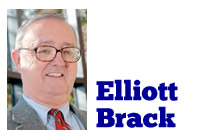 Her most recent book is Leadership in Turbulent Times, concentrating on the key turning points of the tenure of four presidents: Lincoln, both Roosevelts, and Lyndon Johnson.
Her most recent book is Leadership in Turbulent Times, concentrating on the key turning points of the tenure of four presidents: Lincoln, both Roosevelts, and Lyndon Johnson.
Her insight particularly of not why, but how, these four presidents made monumental decisions, is the key takeaway from this recent book of hers. Each of these four great presidents had to search hard for how they could take action in a crisis. All four were wary of taking extra-ordinary action when precedents had not been set before. Each sought legal means, often delicate points to move when our country faced a difficult crisis.
Ms. Goodwin’s book offers a sharp contrast to the manner that current President Donald Trump has taken in delicate situations, while often circumventing previous protocols and policies.
One situation Theodore Roosevelt found the nation in soon after taking office was a far-reaching anthracite coal strike. It lasted more than six months. As the year moved closer to winter, stores of coal were running seriously low, meaning that people especially in the Northeast, heavily dependent on coal, would suffer without heat in winter.
Meanwhile, Teddy Roosevelt was concerned about the rampant consolidation of corporate wealth, as a result of the Industrial Revolution. Roosevelt felt that its speed and size “accentuates the need of the Government to have some power of supervision and regulation over such corporations.” Eventually, he found a way to bring the two sides together, and eventually solved the strike, and kept people in the Northeast warm. But he made sure that he took only legal means to make this happen.
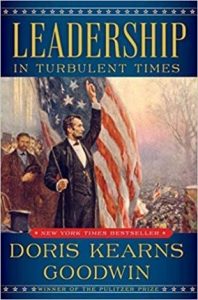 Roosevelt understood that only the government itself could bring the two sides to the table. That was something new for this country, that is, the government taking such leads to solve problems that neither big business and labor wanted the government to step in on. But, Roosevelt knew that the two sides would have taken such steps. Eventually, this led to the government becoming involved and Roosevelt’s “trust busting” of Standard Oil, and other corporations and monopolies that held our nation in a stranglehold for essential goods and services.
Roosevelt understood that only the government itself could bring the two sides to the table. That was something new for this country, that is, the government taking such leads to solve problems that neither big business and labor wanted the government to step in on. But, Roosevelt knew that the two sides would have taken such steps. Eventually, this led to the government becoming involved and Roosevelt’s “trust busting” of Standard Oil, and other corporations and monopolies that held our nation in a stranglehold for essential goods and services.
This step that Theodore Roosevelt started can bring us to the modern times. Today we are not threatened by Standard Oil monopolizing the energy market. Today we see information technology companies like Amazon, Google, Microsoft, Facebook and other modern services, gaining more and more of a stranglehold on our information. Do they need breaking up?
Meanwhile, financial institutions are even more massive than ever before. Do we need to wake up and insist that the banks have better controls, and not be so big?
So the question: is it time for our government to become more aggressive against these private companies and more on the side of the individual, since these modern entities amass more power and dominate their fields and seem to grow even larger each day? Are they gaining too much power?
Sadly, it appears that no one on the horizon has stepped forward to curtail the power of today’s high-tech companies, Big Banks, or any other industry that is becoming humongous in many fields.
Is bigger better? Perhaps Doris Kearns Goodwin might tackle that subject next.
Veteran Georgia newspaperman Elliott Brack is editor and publisher of GwinnettForum.com, where this commentary first appeared.
- Have a comment? Send to: feedback@statehouse report.com
What do you think?
![]() We love hearing from our readers and encourage you to share your opinions. But you’ve got to provide us with contact information so we can verify your letters. Letters to the editor are published weekly. We reserve the right to edit for length and clarity. Comments are limited to 250 words or less. Please include your name and contact information.
We love hearing from our readers and encourage you to share your opinions. But you’ve got to provide us with contact information so we can verify your letters. Letters to the editor are published weekly. We reserve the right to edit for length and clarity. Comments are limited to 250 words or less. Please include your name and contact information.
- Send your letters or comments to: feedback@statehousereport.com
Did it move?
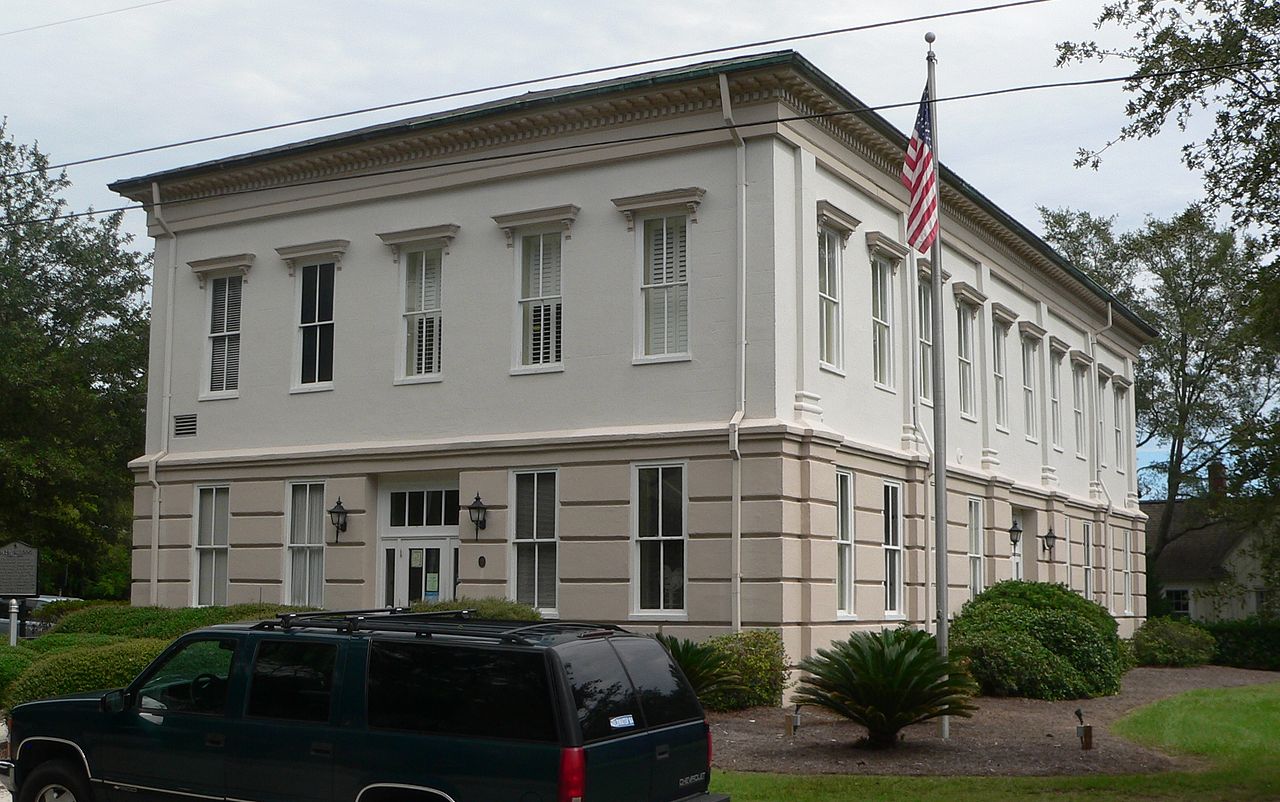
There’s something a little different about this building. It used to be in a different place than it is today. Did it move, or what? Send your best guess of what it is as well as something about it. Send to feedback@statehousereport.com. And don’t forget to include your name and the town in which you live.
Our previous Mystery Photo
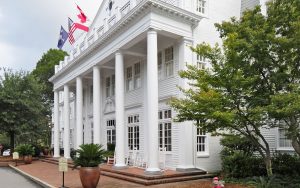 Our July 24, “Flags adorn impressive, grand entrance,” shows historic and sumptuous Willcox Hotel in Aiken, which was named the 10th best resort hotel in the South by Travel + Leisure magazine in 2020. “The Willcox has historic southern charm enough to satisfy Scarlett O’Hara,” the magazine says. “Each of the 22 guest quarters are classic but never fussy, with four-poster beds, stitched floral pillows, and double-height paned windows framed by painted wood plantation shutters.
Our July 24, “Flags adorn impressive, grand entrance,” shows historic and sumptuous Willcox Hotel in Aiken, which was named the 10th best resort hotel in the South by Travel + Leisure magazine in 2020. “The Willcox has historic southern charm enough to satisfy Scarlett O’Hara,” the magazine says. “Each of the 22 guest quarters are classic but never fussy, with four-poster beds, stitched floral pillows, and double-height paned windows framed by painted wood plantation shutters.
The Willcox must be pretty popular with our readers as 19 people identified it. Hats off to: Mary Greene, Danny Cox and Lynn Stokes-Murray, all of Columbia; Dora Bush, Ken Temples, Charles. E. Davis and Will Williams, all of Aiken; Henry Eldridge of Tega Cay; Randy Herald of Lexington; Frank Bouknight of Summerville; Philip Cromer of Beaufort; Don Clark of Hartsville; Susan Igel of North Augusta; George Graf of Palmyra, Va.; Barry Wingard of Florence, Kevin Mertens of Greenville; Layton McCurdy and Montez Martin of Charleston; and Charles Ray Sharpe of Wagener.
Herald noted, “That is the Willcox Inn, my favorite place to fine dine in Aiken. FDR and Winston Churchill met there during WWII and are but two on a list of Who’s Who that have stayed there. The Canadian flag is in respect to the many Canadian guests who stay there during the various steeplechase and fox hunt events. Though I have never had the pleasure of staying there, I would highly recommend the restaurant which features local foods with a decided flair at reasonable prices for such a fine establishment.”
Bouknight and Martin sent in the same quote from Wikipedia: “Willcox’s Hotel, located in Aiken, South Carolina, U.S., was an internationally-known inn during the Aiken Winter Colony heyday. Operated from 1898 to 1957 by members of the Willcox family, the still-magnificent building reflects the influence of both Second Empire and Colonial Revival styles of architecture. The plan of the building is irregular in shape, consisting of a central block with asymmetrical wings. Of Aiken’s once famous resort hostelries, only Willcox’s is still standing. The landmark property was listed on the National Register of Historic Places March 19, 1982.”
Send us a mystery: If you have a photo that you believe will stump readers, send it along (but make sure to tell us what it is because it may stump us too!) Send to: feedback@statehousereport.com and mark it as a photo submission. Thanks.
Lords Proprietors of Carolina
King Charles II granted the land that became North and South Carolina to eight English noblemen in 1663. Before the government of King George II bought out the last owners in 1729, nearly fifty individuals owned or claimed to own these eight shares. South Carolina owes its formative beginnings to these shareholders and their joint colonial enterprise.
Most of the eight original proprietors had remained staunch supporters of the Stuart monarchy after the execution of King Charles I in 1649, and others changed sides to become key figures in the restoration of his son in 1660. The original proprietors gained both elevated rank in the English nobility and colonial property as rewards for this service. The titles of the eight initial owners reflect their rise: Edward Hyde, first earl of Clarendon; George Monck, first duke of Albemarle; William Craven, first earl of Craven; Anthony Ashley Cooper, first earl of Shaftesbury; John Berkeley, first baron Berkeley of Stratton, and his brother Sir William Berkeley, governor of Virginia; Sir George Carteret; and Sir John Colleton. No documentary evidence survives for the organization of the joint enterprise, but it is likely that it was suggested by Sir John Colleton, who ran its affairs in the early years until his death in 1667. A second charter in 1665 extinguished lingering claims from an earlier grant to Sir Robert Heath and extended the grant’s boundaries.
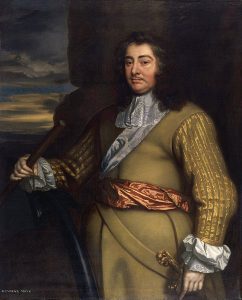
Settlement attempts by New Englanders and Barbadians failed, but the foundering colonial enterprise was rescued by Anthony Ashley Cooper in 1669. Ashley Cooper, who had not yet become the first earl of Shaftesbury, persuaded the other proprietors to fund an expedition from England that established the first permanent English settlement in South Carolina in 1670. None of the original proprietors ever set foot in their colony. Two of them, the earl of Clarendon and Sir William Berkeley, failed to contribute their shares to the financing of the joint enterprise. Sir Peter Colleton, who inherited his father’s share, and the five other active shareholders added the joint proprietorship of the Bahamas to their holdings in the same year that South Carolina was founded. A 1672 agreement to give the Albemarle region, which had been previously settled from neighboring Virginia, to Sir William Berkeley in exchange for his share in the proprietorship fell through. Protracted disputes over the ownership of his share and the Clarendon share necessitated an act of Parliament to assure clear title when the proprietorship was surrendered to the crown in 1729.
Ashley Cooper with assistance from John Locke, who served as secretary to the proprietorship from 1668 to 1675, wrote the Fundamental Constitutions as part of the preparations for the 1669 expedition. That document’s elaborate provisions provided a governing structure for the proprietorship as well as the colonial settlements. The group was to be headed by a palatine, whose substantial powers in naming governors and vetoing laws sometimes had a major impact in South Carolina in later years. The title “palatine” had its origins in the feudal powers of the prince/bishops of Durham, powers granted to the shareholders in their charters. The first three palatines, George Monck, John Berkeley, and Sir George Carteret, were more like figureheads during the years from 1669 to 1682 when the earl of Shaftesbury took the lead in managing their affairs and the fledgling South Carolina settlement.
English noblemen supported their opulent lifestyles from the rents from their landed estates, and the proprietors expected to profit handsomely from their vast new American holdings. They were quickly disappointed when in the early years the often-stubborn colonists did not repay the expenses of setting up the colony. Collection of quitrents on land granted to colonists was a continual problem. Dreams of wealth from gold and silver or the production of wine, silk, and olive oil proved all too elusive for the colony’s successive proprietary owners. Shares in the joint enterprise were bought and sold over the years, but none of the proprietors reaped much profit from their colonial investment.
Only the Colleton, Carteret, and Craven shares remained in the hands of the families of their original owners in 1729. Later generations of the Colleton family were resident South Carolinians at Fair Lawn Seignory on the upper Cooper River. John Carteret, earl of Granville, the great-great-grandson of the original owner, did not join the other seven shareholders in selling out to the crown and received the Granville District along North Carolina’s northern border as his eighth share in the colonial property.
John Archdale, who also served as one of South Carolina’s most effective proprietary governors, bought two different shares over the years. Because he was a Quaker, he placed the first in his son’s name, and he was subsequently disappointed when that son sold it when he came of age. In contrast to Archdale’s positive influence, another purchaser, Seth Sothel, brought disruption and discord when he briefly claimed the governor’s office in South Carolina in 1690.
Proprietary efforts to control South Carolina’s development were slightly more successful than their hoped-for profits. South Carolinians early on asserted an irritating independence. Attempts by royal officials to void the charter began as early as the 1680s in moves to tighten control over England’s colonies. From the South Carolinians’ point of view, the proprietors’ vetoes of their laws, their failure to adequately support the colony’s security, their cessation of further land grants at the same time that they reserved fifteen large tracts for proprietor’s baronies, and other grievances had “unhinged the frame of government.” In December 1719 the South Carolinians revolted against the proprietary regime and asked the crown to take direct control of the colony. A provisional royal governor arrived in 1721, and negotiations led to the 1729 surrender of the proprietors’ ownership of Carolina to the British government.
— From an entry by Charles H. Lesser. This entry has not been updated since 2016. To read more about this or 2,000 other entries about South Carolina, check out The South Carolina Encyclopedia, published in 2006 by USC Press. (Information used by permission.)
ABOUT STATEHOUSE REPORT
Statehouse Report, founded in 2001 as a weekly legislative forecast that informs readers about what is going to happen in South Carolina politics and policy, is provided to you at no charge every Friday.
Meet our team
- Editor and publisher: Andy Brack, 843.670.3996
- Statehouse correspondent: Lindsay Street
Donate today
We’re proud to offer Statehouse Report for free. For more than a dozen years, we’ve been the go-to place for insightful independent policy and political news and views in the Palmetto State. And we love it as much as you do.
But now, we can use your help. If you’ve been thinking of contributing to Statehouse Report over the years, now would be a great time to contribute as we deal with the crisis. In advance, thank you.
Buy the book
Now you can get a copy of editor and publisher Andy Brack’s We Can Do Better, South Carolina! ($14.99) as a paperback or as a Kindle book ($7.99). . The book of essays offers incisive commentaries by editor and publisher Andy Brack on the American South, the common good, vexing problems for the Palmetto State and interesting South Carolina leaders.
More
- Mailing address: Send inquiries by mail to: 1316 Rutledge Ave., Charleston, SC 29403
- Subscriptions are free: Click to subscribe.
- We hope you’ll keep receiving the great news and information from Statehouse Report, but if you need to unsubscribe, go to the bottom of the weekly email issue and follow the instructions.]]
- Read our sister publications: Charleston City Paper (every Wednesday) | Charleston Currents (every Monday).
- © 2020, Statehouse Report, a publication of City Paper Publishing, LLC. All rights reserved.


